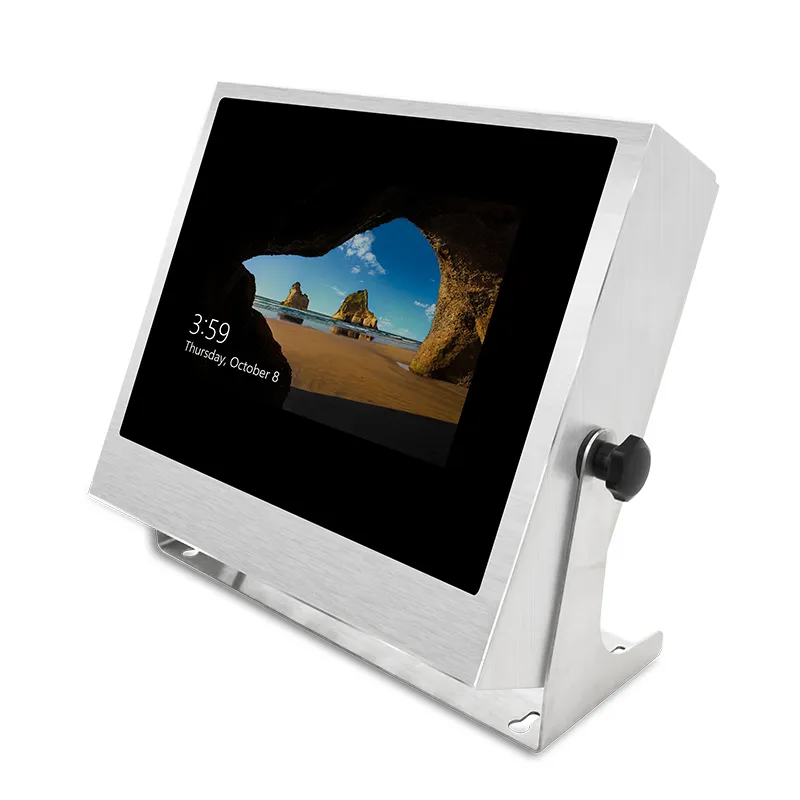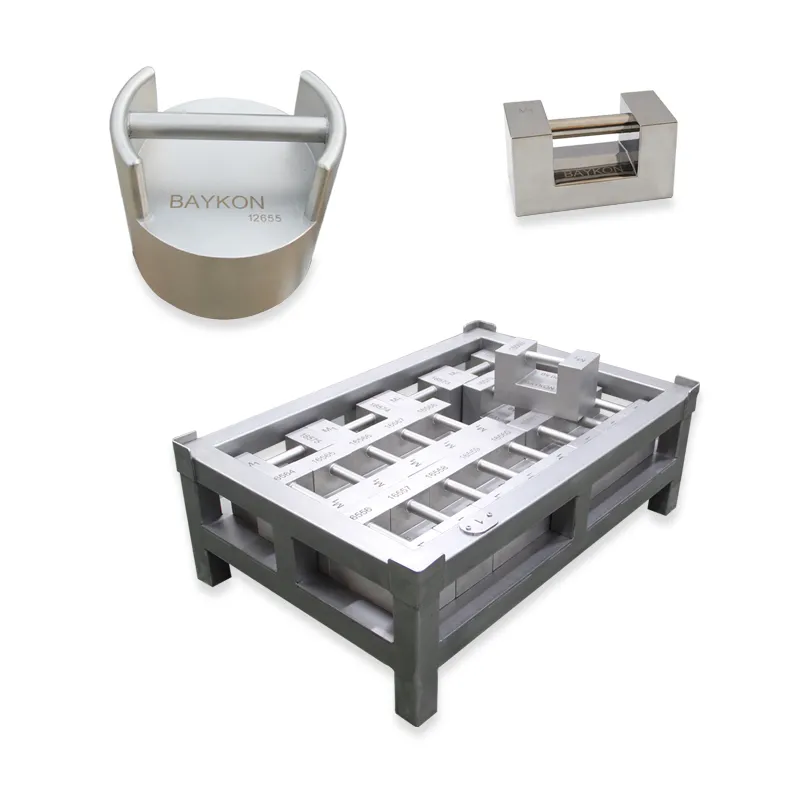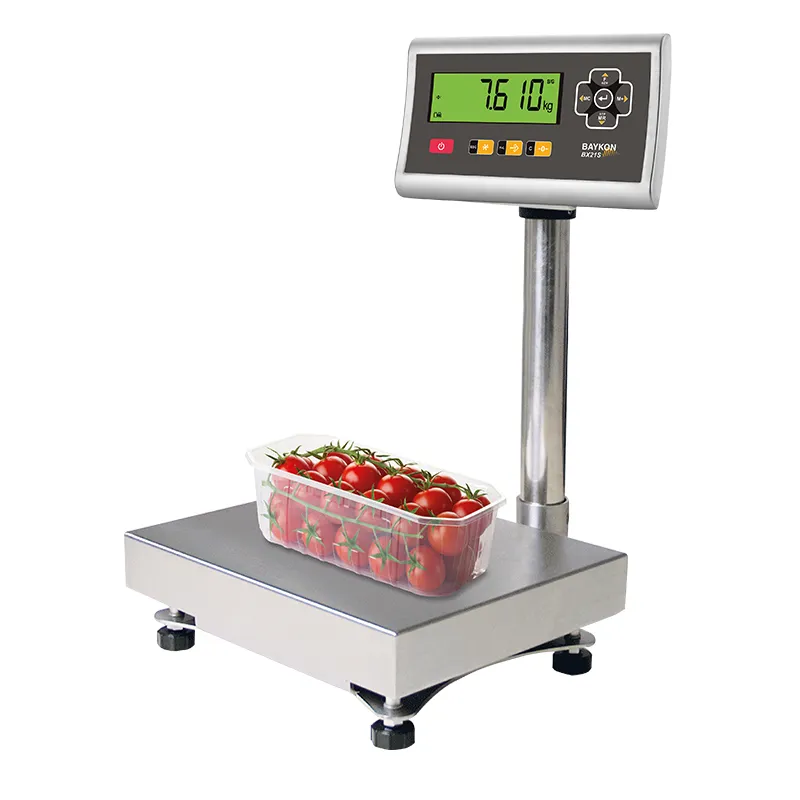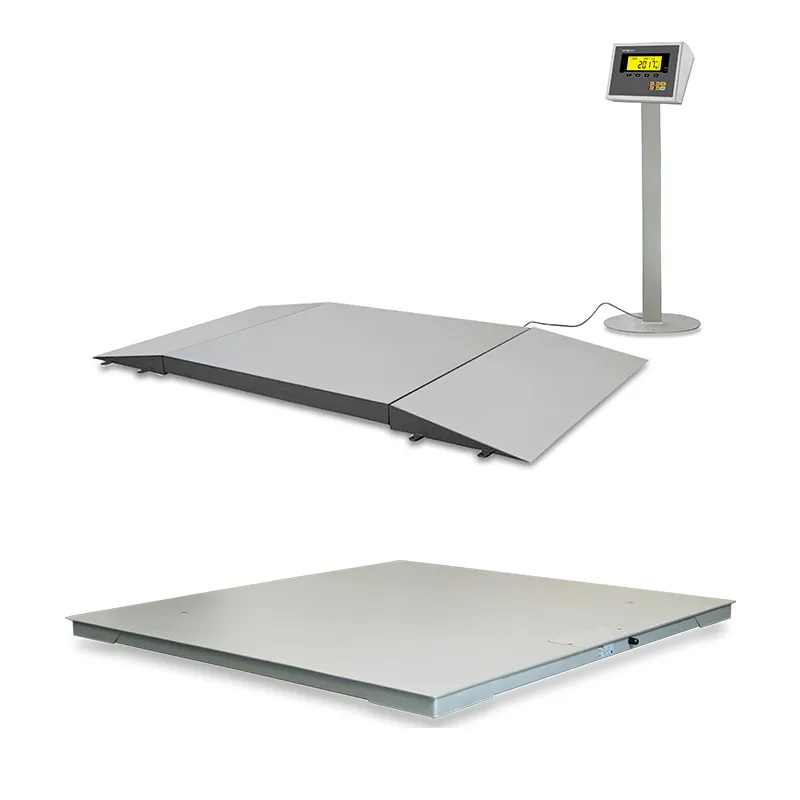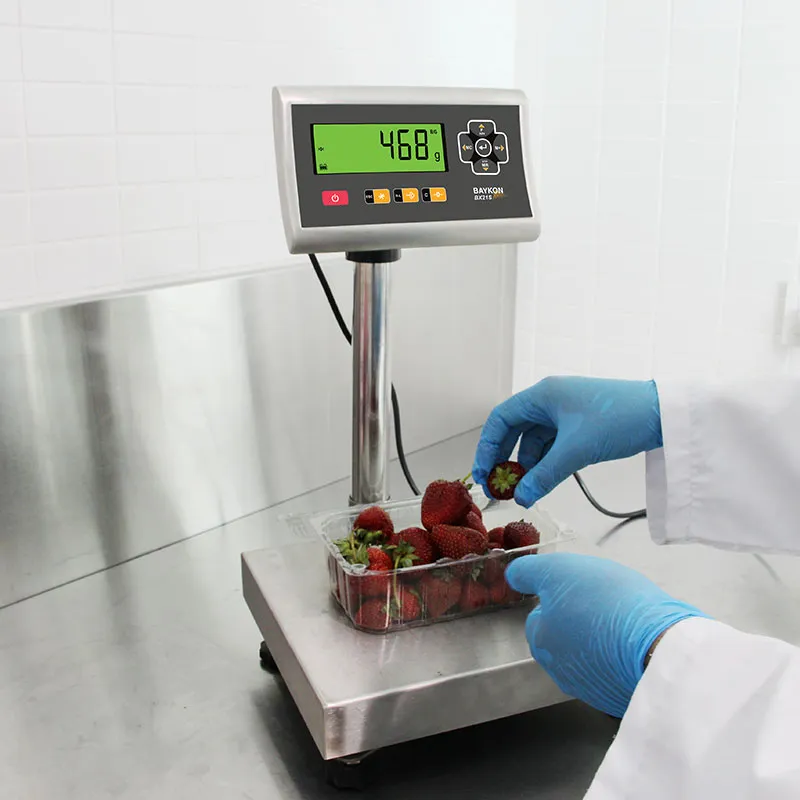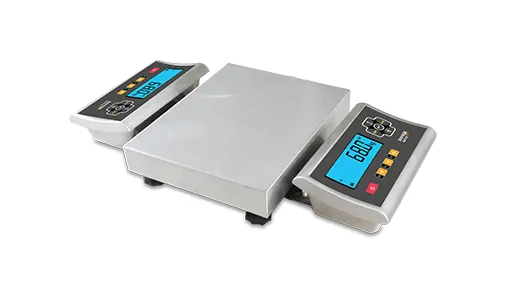In today's industrial sector, making accurate and reliable measurements is vital. Businesses need precise measurement equipment to optimize production processes, ensure quality standards and increase customer satisfaction. At this point, industrial scales play a leading role. Industrial scales are precision equipment used in weight measurement and verification processes. In this article, we will discuss the working principles, different uses and advantages of industrial scales.
Industrial scales are a more advanced version of commercial scales. While commercial scales are usually used to measure light loads, industrial scales are designed to accurately measure larger and heavier loads. These scales are equipped with features such as precision load cells and signal processing technology.
The principle of operation of industrial scales is through the use of a sensor called a load cell. The load cell is a transducer used to measure the load applied to the scale. The load cell produces a resistance change, which is generated by a series of strain gages inside it when the load is applied. This resistance change signal is processed by a signal processing unit, resulting in an accurate weight value.
Industrial scales are widely used in many different industries. For example, in the food and beverage industry, they are used in material input and output control, packaging processes and load handling equipment. Likewise, in the pharmaceutical industry, industrial scales are needed for accurate dosing and batching, weight checks and quality assurance processes. In the automotive industry, they are also used in parts production and assembly, research and development and vehicle weighing.
Industrial scales have many advantages. First, they provide high precision. Thanks to high-tech load cells, accurate measurements are possible even at the milligram level. Precision is critical in areas where accuracy is required in production processes. Secondly, they stand out with their durable construction. Considering that industrial environments often involve working with heavy loads, the robustness and durability of scales is a great advantage. Furthermore, industrial scales often have user-friendly interfaces and features such as data analysis, reporting and tracking.
When we look at the uses of industrial scales, we see that they play a particularly important role in the food industry. Food production is a highly sensitive process in terms of reliability and quality control. Industrial scales enable food manufacturers to measure the correct quantities of raw materials and optimize mixing processes. In addition, in the packaging stage, scales are crucial to ensure accurate weights. Given consumer expectations and government regulations, ensuring accurate measurement is a critical element for meeting safety and quality standards in the food industry.
In the pharmaceutical industry, accurate dosing and mixing processes are vital. Incorrect dosing can affect the efficacy and safety of medicines. For this reason, pharmaceutical manufacturers rely on industrial scales that precisely measure accurate quantities and control mixing processes. Likewise, weight checks play an important role in pharmaceutical packaging processes. Accurate weight measurement is a critical factor to ensure that patients receive the correct dosage of medication.
In the automotive industry, industrial scales are also widely used. In parts production and assembly, accurate measurements and weight checks are critical for ensuring quality standards and optimizing vehicle performance. In research and development, industrial scales are also used to determine and improve the weight distribution of vehicles. Furthermore, vehicle weighing and load distribution checks are important for determining load carrying capacities and enforcing weight restrictions.
Industrial scales are essential tools for making accurate and reliable weight measurements. Thanks to their precision and robust construction, they are widely used in industrial sectors. Food, pharmaceutical, automotive and many other industries need them to optimize production processes, ensure quality standards and increase customer satisfaction. Industrial scales are a combination of technology and measurement engineering, combining precision and reliability with measurement technology. In industrial environments where precision measurement is important, industrial scales provide businesses with a competitive advantage by providing accurate and reliable measurements.
Subscribe to the Newsletter
Stay Informed with Our Innovations through the Newsletter
